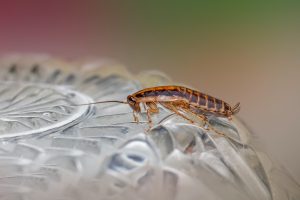Why Do Snails Produce Slime?
Snails are fascinating creatures that have garnered attention for their ability to produce slime. The mucus or slime that snails secrete serves several important functions in their survival and day-to-day activities. Let’s delve deeper into the various roles that snail slime plays and explore additional insights and examples that highlight its significance.
Protection and Defense Mechanism
One of the primary reasons snails produce slime is for protection. The viscous mucus acts as a barrier against predators, helping to deter potential threats from harming the snail. Additionally, the slime can be sticky, making it difficult for predators to grasp the snail or for parasites to attach to its body.
This defense mechanism is crucial for snails, especially when they are faced with predators that might try to eat them. The mucus serves as a physical barrier that can be challenging for predators to overcome, giving the snail a better chance of survival in the wild. For example, when a bird or small mammal attempts to prey on a snail, the sticky slime can cause frustration and deter the predator, allowing the snail to escape.
Case Study: The Garden Snail
The common garden snail, Cornu aspersum, utilizes its slime to deter predators like birds and small mammals. Gardeners often notice that despite the presence of numerous natural predators, garden snails survive well in urban settings. Their slime plays a significant role in this survival, providing both a physical barrier and an unpleasant texture that many predators prefer to avoid.
Additional Examples of Defense
Beyond garden snails, many marine snails use their slime in similar defensive ways. The Aplysia, or sea hare, for instance, releases a cloud of purple ink when threatened, which is a form of slime that disorients predators and allows the snail to escape. This reaction is akin to the defensive mechanisms seen in octopuses and squids, showcasing the versatility of slime beyond simple mucus.
Moisture Retention and Hydration
Snails are vulnerable to drying out, especially in dry or hot environments. The slime they produce helps them retain moisture and stay hydrated. By secreting mucus, snails create a layer that prevents water loss through their skin, enabling them to thrive in various habitats.
This moisture-retaining ability is essential for snails, as it allows them to survive in environments where water is scarce. The slime acts as a protective barrier that locks in moisture, preventing dehydration and ensuring the snail’s well-being. In arid regions, snails can often be seen hiding under rocks or burrowing into the soil, relying on their slime to maintain moisture levels during the hottest parts of the day.
Practical Tips for Snail Care
If you’re keeping snails as pets or in a terrarium, maintaining humidity is crucial. Ensure that the environment is moist but not waterlogged. Regularly mist the terrarium and provide a shallow dish of water. Observing your snails’ slime production can be a good indicator of their hydration levels.
- Create a Humid Zone: Use moss or other absorbent materials that can retain moisture in the terrarium, creating a microclimate where snails can find refuge.
- Monitor Temperature: Keep an eye on the temperature, as warmer climates increase the risk of dehydration. A steady temperature between 65-75°F is ideal for most terrestrial snails.
Mobility and Navigation
The slime produced by snails also plays a crucial role in their locomotion. Snails glide on a layer of mucus, reducing friction with the surfaces they move across. This slippery trail facilitates their movement and allows them to navigate more efficiently through their environment.
The mucus trail left behind by snails not only helps them move but also serves as a navigational aid. By following their own slime trail, snails can more easily find their way back to their shelter or locate potential food sources, enhancing their overall ability to survive in their habitat.
Real-World Example: Snail Trails in the Garden
Gardeners might notice shimmering trails on their soil or plant leaves. These are not just random paths; snails use these trails to communicate and mark paths to food sources. By understanding and observing these trails, gardeners can identify snail hotspots in their gardens and take measures to protect vulnerable plants.
Understanding Snail Movement
A fascinating aspect of snail locomotion is the way they use muscular contractions in conjunction with slime to propel themselves forward. The process, known as pedal waves, involves rhythmic contractions of the muscles on the underside of the snail’s foot. These contractions, combined with the lubrication provided by slime, enable the snail to move effortlessly across various surfaces, from rough soil to smooth leaves.
Enhanced Feeding and Digestion
Snails use their slime not only for protection and mobility but also for feeding. The mucus contains enzymes that help break down food particles, aiding in digestion. By excreting slime onto their food source, snails can soften and consume plant matter more effectively.
This enzymatic function of their slime is crucial for snails to extract nutrients from their food. The enzymes present in their mucus assist in breaking down food particles, making it easier for snails to digest and absorb essential nutrients for their growth and energy needs.
Snail Diet and Slime
In captivity, a well-balanced diet is crucial. Foods like leafy greens, fruits, and calcium sources can be made more digestible with the help of snail slime. Observing how snails produce slime while eating can give insights into their dietary preferences and health.
- Calcium Importance: Provide cuttlebone or eggshells to ensure that snails receive enough calcium, which is vital for shell strength and health.
- Food Variety: Offer a range of vegetables like lettuce, cucumbers, and carrots, which snails will often slime over to prepare for consumption.
Additional Functions of Snail Slime
Beyond these primary functions, snail slime has additional roles that contribute to their survival and adaptation in various environments.
Reproduction
During mating, the slime plays a role in the courtship process. It facilitates the movement of snails during the mating dance, ensuring that both partners can align properly. The slime can also contain pheromones, which are crucial for attracting mates and ensuring successful reproduction.
Environmental Adaptation
Snail slime helps them adapt to various environmental conditions. For instance, in acidic environments, the slime can neutralize the pH levels, protecting the snail’s sensitive skin. This adaptation allows snails to inhabit diverse ecosystems, from forests to gardens.
Case Study: Acidic Environments
In regions with high soil acidity, such as those near volcanic areas, snails have evolved slime that is particularly effective at neutralizing harmful pH levels. This adaptation not only protects the snail but also contributes to the ecological balance by preventing excessive soil acidification.
Snail Slime: A Human Perspective
Snail slime has intrigued humans for centuries, leading to both scientific and commercial interest. In recent years, snail slime has become a popular ingredient in skincare products due to its hydrating and regenerative properties.
Snail Slime in Skincare
Products containing snail mucin are touted for their ability to improve skin texture, hydration, and healing. The proteins and glycosaminoglycans in the slime are believed to help with skin regeneration and elasticity.
- Scientific Evidence: Research shows that snail mucin can promote collagen production and improve wound healing, making it a valuable ingredient in skin-repair formulations.
- Consumer Tips: When choosing skincare products with snail mucin, look for reputable brands and check for the concentration of mucin to ensure efficacy.
Historical Use of Snail Slime
Historically, snail slime has been used in traditional medicine for its healing properties. In ancient Greece, Hippocrates reportedly recommended crushed snails for treating inflammatory skin conditions. Such historical uses underscore the long-standing recognition of snail slime’s beneficial properties.
Common Misconceptions About Snail Slime
While many people appreciate the benefits of snail slime, there are common misconceptions that are worth addressing.
Misconception: All Slime is the Same
Not all snail slime is created equal. Different species produce mucus with varying compositions, tailored to their specific environmental and survival needs. For example, the slime of a marine snail differs significantly from that of a terrestrial snail, both in texture and function.
Misconception: Slime is Harmful
Some believe that snail slime is harmful to plants or humans. In reality, while snails can be pests in gardens, their slime is not toxic. In fact, it plays a beneficial role in snail ecology and is harmless to touch.
Addressing Garden Myths
It’s a common garden myth that snail slime damages plants. While snails do eat plant material, it’s their consumption, not the slime, that causes damage. Understanding this distinction can help gardeners manage snails more effectively, using barriers or natural predators rather than harmful chemicals.
Observing Snails in Nature
For those interested in observing snails, understanding their slime production can enhance the experience. Tips for observation include:
- Choose the right time: Snails are most active during damp conditions, such as early morning or after rain.
- Observe carefully: Look for trails and follow them to find snails in their natural habitat.
- Be gentle: If handling snails, be mindful of their delicate slime layer, which is essential to their survival.
Engaging with Snail Habitats
- Create a Snail-Friendly Garden: Encourage a healthy snail population by providing a moist, plant-rich environment. Use mulch to retain moisture and offer hiding spots for snails.
- Participate in Citizen Science: Engage with local wildlife organizations that track snail populations. Contributing observations can provide valuable data on snail ecology and behavior.
Snail slime is a remarkable substance that serves multiple functions, from protection and hydration to mobility and digestion. By understanding and appreciating the role of slime in a snail’s life, we can gain insights into their behavior and ecology, as well as explore the potential benefits of snail mucin in various applications. Whether you’re a gardener, a pet owner, or simply a nature enthusiast, there’s much to learn from these slow-moving, slime-producing creatures.


